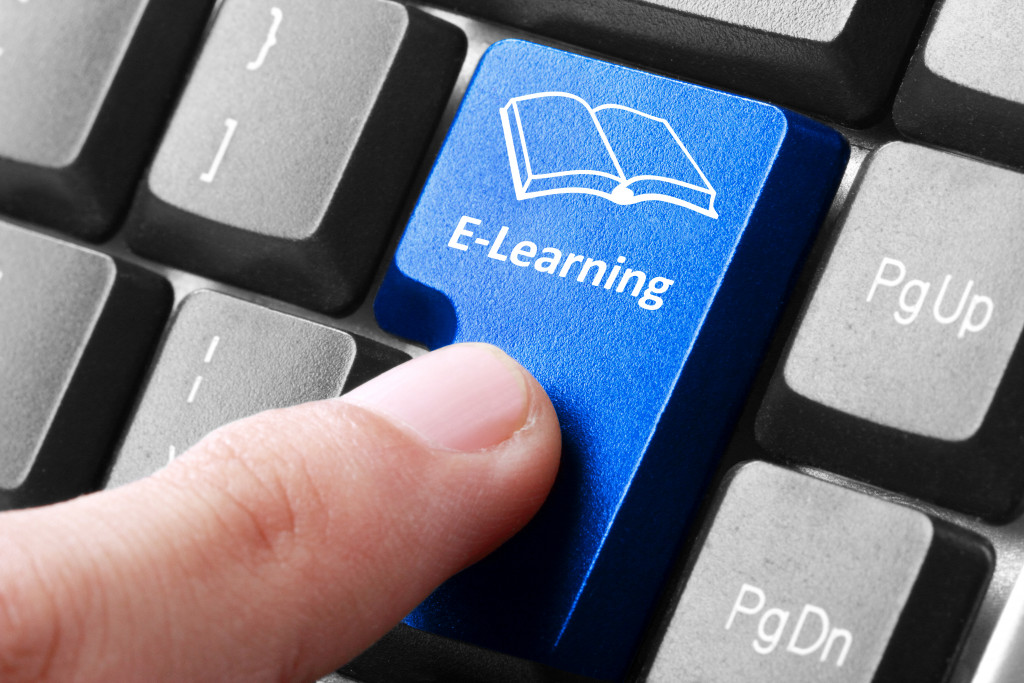Websites and Educational Benefits
The internet has made knowledge very accessible for all students. They can use the internet to verify facts, gain additional information, and even learn something new. Since the start of the pandemic, students have been mandated to attend their classes online. This is to eliminate the health risks that might endanger the health and well-being of the students due to exposure.
However, despite the convenience presented by the internet, especially in terms of accessing knowledge and information and enhancing communication, most students still find it difficult to adjust to the new norm for learning. One of the things that can help make the transition in education easier for students in developing educational websites that are functional, accessible, and easy to use. Below is a thorough explanation of how building the best educational website can improve students’ learning experience.
Not Just a Trend
Websites are not just a trend for every educational institution. Websites are a necessity because educational institutions also need to establish their online presence to succeed. Since the world has become more digitalized, it is expected that educational institutions jump on the bandwagon. Most students are computer-literate and know their way around the internet. They have no difficulty when it comes to accessing information online and exploring educational websites to enhance their learning experience.
Therefore, educational institutions need to focus on proper web design and development. After all, the goal is to give students the best online learning experience to make sure that their engagement will not waver and that they will always have access to learning resources to help them explore new ideas and gain more knowledge. Educational institutions can also turn their websites into contact or focal point for their students. This way, students can get in touch with their teachers with more ease and less hassle.
Benefits of a Customized Experience
Regular designs are expected of educational websites. However, students stand to benefit from a personalized design, too. One of the essential components of a functional educational website is its responsiveness. Students need to access all the parts of the website to enhance their overall experience with the website. Furthermore, educational websites need to be open for explorations so that students can customize their online interactions based on their specific needs.
Educational websites need to incorporate infographics to enhance the efficiency of the entire user experience for students. Explaining educational courses and programs will become easier if the website is responsive, personalized, accessible, and user-friendly. Students find that they learn better if the website is immersive and easy to use. Offering a high standard of content and information can help students enjoy the best quality of online education they can get despite the challenges posed by this new learning method in education.
Focusing on In-Depth Content

For students, content is the key to enhancing the best user-experience they can maximize. When students interact with an educational website, they expect a website that is informative, accessible, and easy to navigate. Educational websites need to be informative, accessible, and easy to navigate because their main purpose is to educate students and enhance their learning. Therefore, educational websites need to present in-depth content at all times.
Students thrive on their curiosity and the need to learn. Therefore, students expect to learn a lot from educational websites. Educational institutions need to do their best to make sure that their educational websites will satisfy the curiosity of their students. After all, educational institutions are responsible for enhancing learning and encouraging students to access the information they need to establish the best educational experience.
How-to Websites and Digital Libraries
Educational websites need to establish specific areas where students can access the information they need to appease their thirst for knowledge. Educational institutions can lean on the concept of creating a how-to website to assist students with step-by-step processes in accomplishing different educational endeavors. This website will enhance independent learning because the students will be responsible for following instructions to achieve different outcomes. If educational institutions create the perfect how-to website, they can establish good opportunities for independent learning.
Digital libraries, on the other hand, are websites where students can find a myriad of study materials and other educational resources in different formats. Educational videos and infographics are accessible in digital libraries, which will help enhance the students’ learning experience by unlocking their creativity and encouraging their imagination to explore educational concepts and ideas. Learning will always be guaranteed as long as students remain curious and are willing to appease their thirst for knowledge by staying committed to learning.
Enhanced Education
Even though online learning is different from face-to-face classes, educational institutions have found a way to enable students to continue their educational journey despite the pandemic challenges. Educational institutions need to enhance their students’ learning experience by paving the way towards an enhanced learning experience through accessible, user-friendly, and informative websites.
